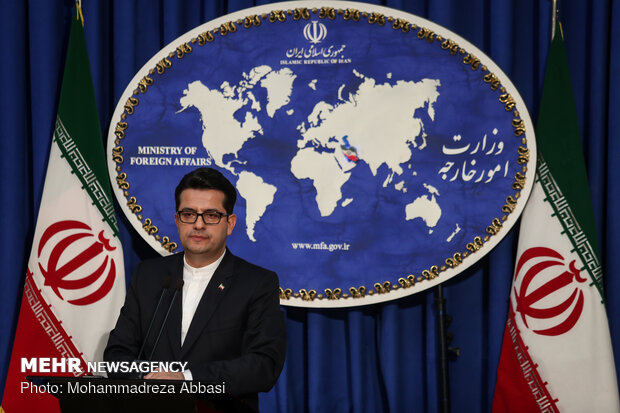“Many of the fake claims mentioned in PGCC statement are not even worth answering; such comments will lead to nothing but the continuation of current destructive trends [in the region] and will push the region into an unknown future," Iranian Foreign Ministry Spokesman Seyyed Abbas Mousavi said Wednesday.
“The repetition of these unfounded claims is the result of the political pressure exerted by few members of the council that have made every effort in the past decades to hamper multilateral cooperation,” he added.
Mousavi further said, “Those are the countries that not only have afflicted sever losses to their neighbors, but they also provided the grounds for the alien states to increase their interference in the region.”
The spokesman called on the Persian Gulf littoral states to be vigilant and not let the few members disrupt the constructive ties between Iran and its Arab neighbors.
In a highly hostile rant, Saudi King Salman bin Abdulaziz Al Saud called on Persian Gulf Cooperation Council countries to “confront” Iran, blaming Tehran for what he called “aggressive actions” that endanger regional peace.
“Our region today is passing through circumstances and challenges that require concerted efforts to confront them as the Iranian regime continues its aggressive actions that threaten security and stability,” Salman said during the 40th GCC summit in Riyadh.
Echoing the Israeli regime and the US, King Salman accused Iran of “deception” over its nuclear program, urging the world community to address the Islamic Republic’s nuclear activities as well as it conventional missile program.
Riyadh and Tel Aviv are among the few staunch critics of a UN-endorsed nuclear deal signed in 2015 between Tehran and the five permanent members of the UN Security Council.
Backed by its vassal states in the region, the US has since been attempting to militarize the Middle East’s key waterways under the pretext of confronting what it calls Iranian “threats” to regional peace.
Washington and its allies have blamed Tehran for a number of suspicious attacks on oil tankers in regional waters, with the US launching a push to create an international coalition of allies under the guise of protecting the shipping lines of the Persian Gulf.
Iran rejects the claims and says those assaults were false-flag operations meant to frame the Islamic Republic. Tehran has repeatedly said it is ready to settle its differences with Saudi Arabia through dialog. It has also drawn up an initiative dubbed — Hormuz Peace Endeavor (HOPE) — aimed at boosting collective neighborly efforts to safeguard the region free from foreign interference.
This year’s summit of the PGCC — comprised of Bahrain, Kuwait, Oman, Qatar, Saudi Arabia, and the UAE besides Saudi Arabia — was originally scheduled to be held in the UAE. It was, however, relocated to Saudi Arabia without any announced reason.
MNA/4795060
